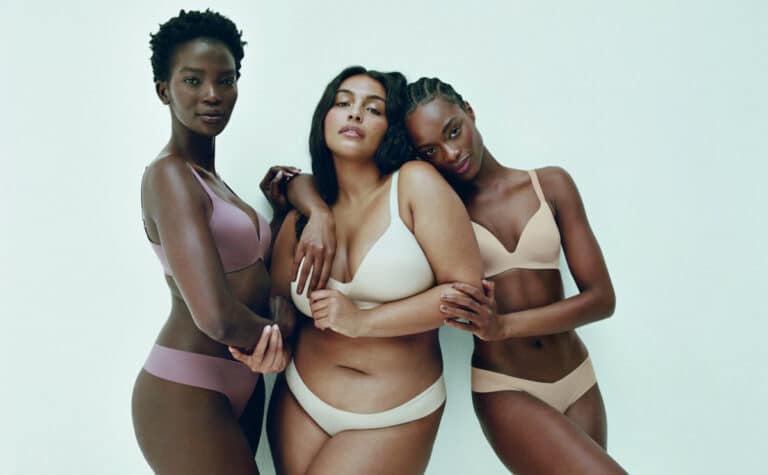Victoria’s Secret trades its infamous Angels for inspiring women. Will we fall for it?

Victoria’s Secret, which cancelled its famed fashion show in 2019, has just unveiled a new roster of stars who will represent the brand under its revamped marketing model. That’s right, Victoria’s Secret is back, with no Angels in sight this time. In their place, the brand launched two initiatives, dubbed ‘The VS Collective’ and ‘The Victoria’s Secret Global Fund for Women’s Cancers’, on Wednesday 16 June. What are these about exactly, and will this extreme turnaround work out for the brand?
Instead of its infamous Angels, the lingerie giant picked seven women “famous for their achievements and not their proportions,” writes The New York Times. They include Megan Rapinoe, the 35-year-old pink-haired soccer star and gender equity campaigner; Eileen Gu, a 17-year-old Chinese American freestyle skier and soon-to-be Olympian; the 29-year-old biracial model and inclusivity advocate Paloma Elsesser, who was the rare size 14 woman on the cover of American Vogue; and Priyanka Chopra Jonas, a 38-year-old Indian actor and tech investor.
It also includes Valentina Sampaio, a Brazilian trans model; Adut Akech, a model and South Sudanese refugee; and Amanda de Cadenet, the photographer and founder of @Girlgaze, the digital platform for female photographers.
For decades, Victoria’s Secret’s scantily clad supermodels with Barbie-esque bodies epitomised a certain widely accepted stereotype of femininity. Now, with that kind of imagery out of touch with the broader culture and what younger generations believe in, the brand has been facing increased competition and internal turmoil since at least 2019. Understandably, the company has had to not only accept to rebrand itself, but also everything it stands for. It needs to redefine its own version of what ‘sexy’ means, or it will quickly die.
And according to what Victoria’s Secret’s chief executive told The New York Times, “the company wants to become a leading global ‘advocate’ for female empowerment.” Let’s see about that, shall we? Let’s not forget that Leslie H. Wexner, chairman and CEO of the L Brands corporation, the parent company of brands including Victoria’s Secret, once praised Jeffrey Epstein as “a most loyal friend” with “excellent judgment and unusually high standards.”
Oh, and should we speak about the countless toxic views the lingerie company actually promoted? From unrealistic ideals and negative body image to sexism and racism, Victoria’s Secret promoted it all, and mostly to impressionable young women. “When the world was changing, we were too slow to respond,” said Martin Waters, the former head of Victoria’s Secret’s international business who was appointed chief executive of the brand in February. “We needed to stop being about what men want and to be about what women want.”
The seven women, now known as The VS Collective, will alternately advise the brand, appearing in ads and promoting Victoria’s Secret on Instagram. Meanwhile, the company has an entirely new executive team and is forming a board of directors in which all but one seat will be occupied by women. Though the company’s share of the US women’s underwear market dropped to 21 per cent in 2020 from 32 per cent in 2015, according to Euromonitor International, it is still a powerhouse.
That being said, it has taken years for Victoria’s Secret to acknowledge that its marketing was outdated. In that time, the value of the brand eroded and a slew of competitors grew, in part by positioning themselves as the anti-Victoria’s Secret, focused on inclusivity and diversity.
For its ‘second chance’, the new Victoria’s Secret will split from L Brands and Bath & Body Works to become its own public company this summer. The company will still sell products like thongs and lacy lingerie, but its scope will expand, especially in areas like sportswear. The brand, which did finally introduce a Mother’s Day campaign in May and even featured a pregnant model, will also soon begin selling nursing bras.
As for the dreaded Victoria’s Secret Fashion Show, the company told The New York Times it would most likely return in 2022 in a very different form. In the meantime, the brand will offer a podcast featuring the women in the collective, a medium that requires no visuals. Do I buy it? Not really. Will I keep an eye on the brand’s new identity? It certainly looks like I won’t have much of a choice.





